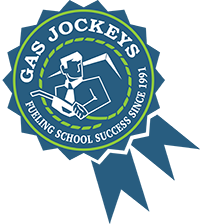It doesn’t matter what you are thinking, or what fear you have, if you just do it! Action is the only thing that matters.. . I can see that at the end of my life, I am not going to look back and say, [I wish I had taken more action]. – Diana von Welanetz Wentworth
As of July 1, 2015, career and vocational programs are facing tougher regulations that have been years in the making. The new so-called “gainful employment” rule is meant to crack down on programs that load students up with debt for courses that don’t lead to decent jobs. The rules especially target for-profit colleges, which often make close to 90 percent of their revenue from taxpayer dollars.
A career education program could become ineligible for federal student aid if typical graduates have to spend more than 20 percent of their discretionary income paying off their loans, or more than 8 percent of their total income.
“It’s designed to ensure that taxpayer dollars don’t fund career education programs that consistently leave students with debts they can’t repay,” says Pauline Abernathy with the Institute for College Access and Success.
In anticipation of the new rules, Abernathy says some colleges already have cut failing programs, reduced tuition and improved job placement.
Some schools will also raise admissions standards, says Robert Kelchen, assistant professor of higher education at Seton Hall University. Earlier this week, the University of Phoenix, one of the largest for-profit colleges, announced it would introduce some academic requirements for its degree programs.
“If a student can barely get through the program and doesn’t seem to be a good bet to get employment, that’s the kind of person that the college might want to discourage enrolling,” Kelchen says.
Failing programs will have a chance to improve before the money gets cut off.
Here is a breakdown of how the numbers play-out:
The United Nations Foundation connects the UN’s work with supporters around the world, mobilizing engaged global citizens, businesses, and non-governmental organizations to help the UN tackle issues.
A lesson for admissions professionals in the arts of engagement across the campus, enlisting support and making allies everywhere, but chiefly at the top.
This message was sent using ShareThis (http://www.sharethis.com)
Don’t you get it? This very second you could be doing something you love and dream about doing. So do it! NOW!
People become successful the minute they decide to. – Harvey Mackay
To be a leader, you must stand for something, or you will fall for anything. – Anthony Pagano
To accomplish great things, we must not only act, but also dream, not only plan, but also believe. – Anatole France
The Head Of The Nation’s Largest LGBT R… http://www.buzzfeed.com/chrisgeidner/the-head-of-the-nations-largest-lgbt-rights-group-on-what-co

